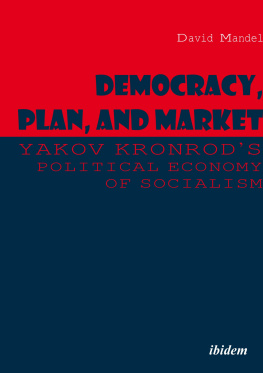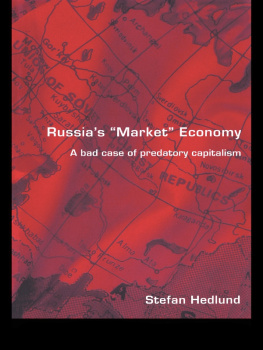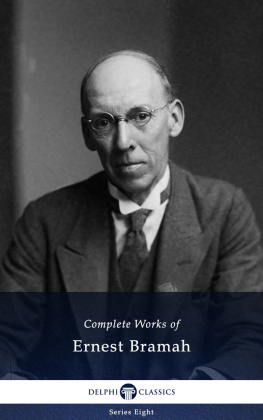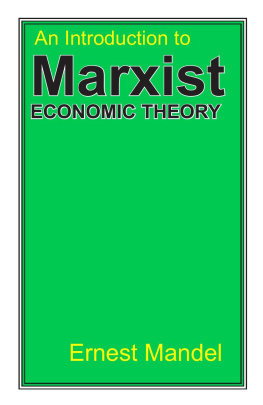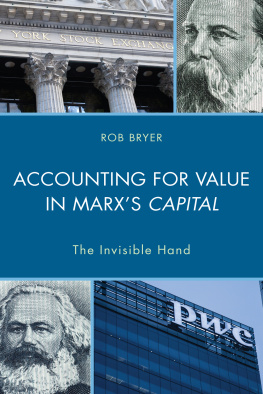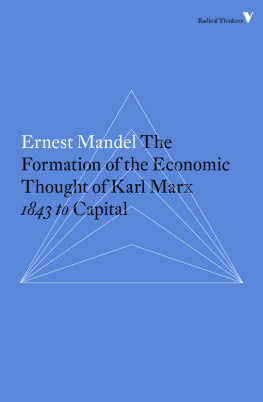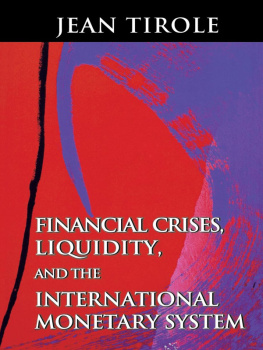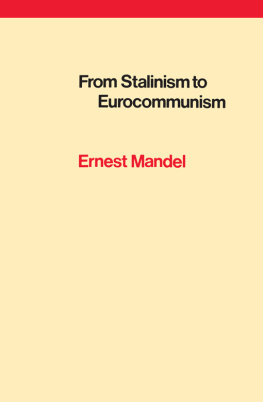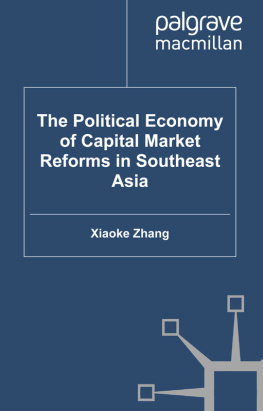
CAPITAL
VOLUME 3
KARL MARX was born at Trier in 1818 of a German-Jewish family converted to Christianity. As a student in Bonn and Berlin he was influenced by Hegels dialectic, but he later reacted against idealist philosophy and began to develop his theory of historical materialism. He related the state of society to its economic foundations and mode of production, and recommended armed revolution on the part of the proletariat. In Paris in 1844 Marx met Friedrich Engels, with whom he formed a life-long partnership. Together they prepared the Manifesto of the Communist Party (1848) as a statement of the Communist Leagues policy. In 1848 Marx returned to Germany and took an active part in the unsuccessful democratic revolution. The following year he arrived in England as a refugee and lived in London until his death in 1883. Helped financially by Engels, Marx and his family nevertheless lived in great poverty. After years of research (mostly carried out in the British Museum), he published in 1867 the first volume of his great work, Capital. From 1864 to 1872 Marx played a leading role in the International Working Mens Association, and his last years saw the development of the first mass workers parties founded on avowedly Marxist principles. Besides the two posthumous volumes of Capital compiled by Engels, Karl Marxs other writings include The German Ideology, The Poverty of Philosophy, The 18th Brumaire of Louis Bonaparte, The Civil War in France, A Contribution to the Critique of Political Economy, Grundrisse: Foundations of the Critique of Political Economy and Theories of Surplus-Value.
ERNEST MANDEL was born in 1923. He was educated at the Free University of Brussels, where he was later Professor for many years, and the cole Pratique des Hautes tudes in Paris. He gained his PhD from the Free University of Berlin. He was a Member of the Economic Studies Commission of FGTB (Belgian TUC) from 1954 to 1963 and was chosen for the annual Alfred Marshall Lectures by Cambridge University in 1978. His many books include The Formation of the Economic Thought of Karl Marx, Late Capitalism, The Long Waves of Capitalist Development, The Second Slump and The Marxist Theory of Bureaucracy. His influential pamphlet, An Introduction to Marxist Economics, sold over half a million copies and was translated into thirty languages. Ernest Mandel died in July 1995. In its obituary the Guardian described him as one of the most creative and independent-minded revolutionary Marxist thinkers of the post-war world.
KARL MARX
Capital
A Critique of Political Economy
Volume Three
Introduced by Ernest Mandel
Translated by David Fernbach
Penguin Books
in association with New Left Review
PENGUIN BOOKS
Published by the Penguin Group
Penguin Books Ltd, 80 Strand, London WC2R 0RL, England
Penguin Putnam Inc., 375 Hudson Street, New York, New York 10014, USA
Penguin Books Australia Ltd, 250 Camberwell Road, Camberwell, Victoria 3124, Australia
Penguin Books Canada Ltd, 10 Alcorn Avenue, Toronto, Ontario, Canada M4V 3B2
Penguin Books India (P) Ltd, 11 Community Centre, Panchsheel Park, New Delhi 110 017, India
Penguin Books (NZ) Ltd, Cnr Rosedale and Airborne Roads, Albany, Auckland, New Zealand
Penguin Books (South Africa) (Pty) Ltd, 24 Sturdee Avenue, Rosebank 2196, South Africa
Penguin Books Ltd, Registered Offices: 80 Strand, London WC2R 0RL, England
www.penguin.com
New Left Review, 7 Carlisle Street, London W1
This edition first published in Pelican Books 1981
Reprinted in Penguin Classics 1991
Edition and notes copyright New Left Review, 1981
Introduction copyright Ernest Mandel, 1981
Translation copyright David Fernbach, 1981
All rights reserved
ISBN: 9780140445701
General Index
Abstinence,
Accumulation, rate of,
Accumulation fund,8
Accumulation of capital, 6;
and falling rate of profit, ;
and foreign trade, 5;
general laws, ;
limits,
Accumulation of money capital, 52
Africa,
Agriculture, 15;
and cottage industry, 2;
and manufacture, ;
capitalist
composition of capital in, 902;
contradictions in capitalist, 7;
decline of living labour in, ;
development of capitalism in, ;
in colonies, ;
labour productivity in,;
natural conditions for, 13;
precapitalist, 4;
products of, 8;
rationalization of, 50;
under communism, 800;
use of waste products in, 6;
workers in,
Agronomy,
Alexander, Nathaniel,
Alienation, 9
America, U.S. of,
Amortization, 5
Anarchy of capitalist production, 21
Ancillaries,
Anderson, Adam,
Anderson, James,7
Anderson, James Andrew,
Anne, Queen of England,
Annuities,
Antiquity,
Apologetics,
Arbuthnot, John,
Archimedes,
Argentina,
Aristotle,
Arnd, Karl,
Ashley, Lord, see Shaftesbury Asia,
Attwood, Thomas,
Augier, Marie,
Australia,
Authority,
Babbage, carles,
Babylon,
Baker, Robert,
Balance of payments, 7
Balzac, Honor de,
Bank credit,
Bank of England, 4
Bank Restriction Act,
Bankers, 9
Banking capital,
Banknotes, ;
circulation of,
Bankruptcy,
Banks, 7;
deposit, ;
exchange, 4;
jointstock, 6;
national, 708. See also Money dealing
Baran, Paul,
Baring family,
Base and superstructure, 30
Bastiat, Frdric,
Bauer, Otto,
Baynes, John, 19
Bekker, Immanuel,
Bell, G. M.,
Bellers, John,
Bentinck, Lord George,
Bernal Osborne, Ralph,
Bernstein, Eduard,
Bessemer, Sir Henry,
Billbrokers,
Bills of exchange, ;
as means of circulation, ;
as means of payment, ;
discounting of,
Bimetallism,
BhmBawerk, Eugen von,
Bookkeeping,
Bortkiewicz, Ladislaus von, 9
Bosanquet, James,
Braun, Heinrich,
Bright, John,
Briscoe, John,
Brown, William,
Building industry, 10
Buildings, rent on, 10
Bukharin, Nikolai, 3
Buret, AntoineEugne,
Bsch, Johann Georg,
Byproducts,
Cagliostro,
Cairnes, John Elliot, 8
California,
Calvinism,
Campbell, John,
Canada,
Cantillon, Richard,
Capital,
Capital, advance of, 2;
as commodity, ;
as money, (see also Banking capital, Loan capital, Money capital, Moneydealing capital);
as selfvalorizing value, ;
as social relation, 70;
change in value, 8;
devaluation, ;
export, ;
fictitious, ;
general formula, 5;
in precapitalist modes, ;
migration of, ;
potential, ;
release and tyingup, 9;
subordination of labour to, Investment of capital, Merchants capital, Productive capital Social capital, Variable capital
Capital market, . See also Money market
Capitalist, 3;
aim, 300;
as landowner, ;
as personified capital, 20;
function, ;
ideas on profit, 9;
industrial, 6;
trading, 4
Capitalist class, 6
Capitalist mode of production, barriers to, 72;
bourgeois economists on, 91;
general character, ;
historic task, ;
need for transition to socialism, 73;
prerequisites, ;
transitory character, 4
Capitalist production, ;
conditions, ;
costs, (see also
Next page


